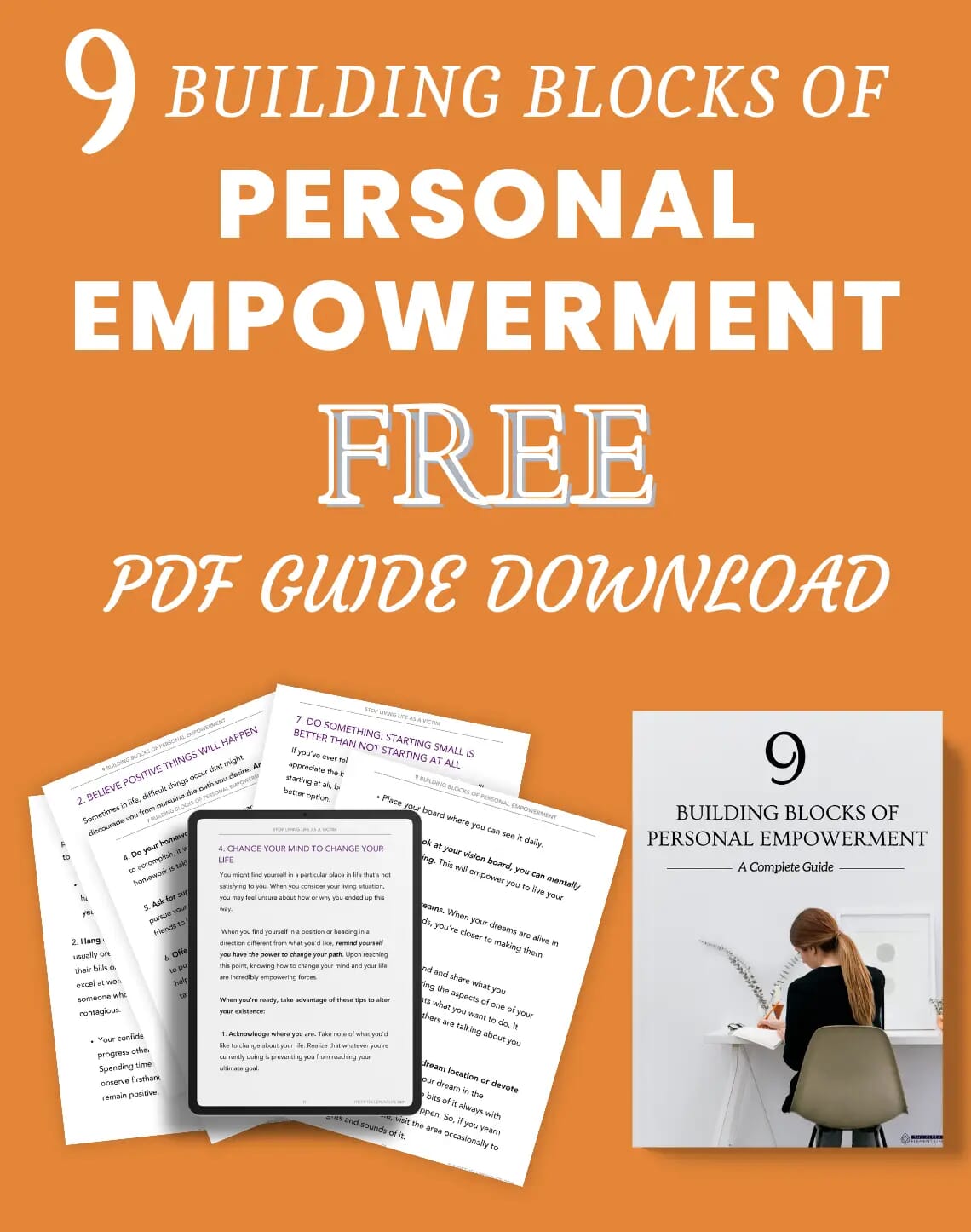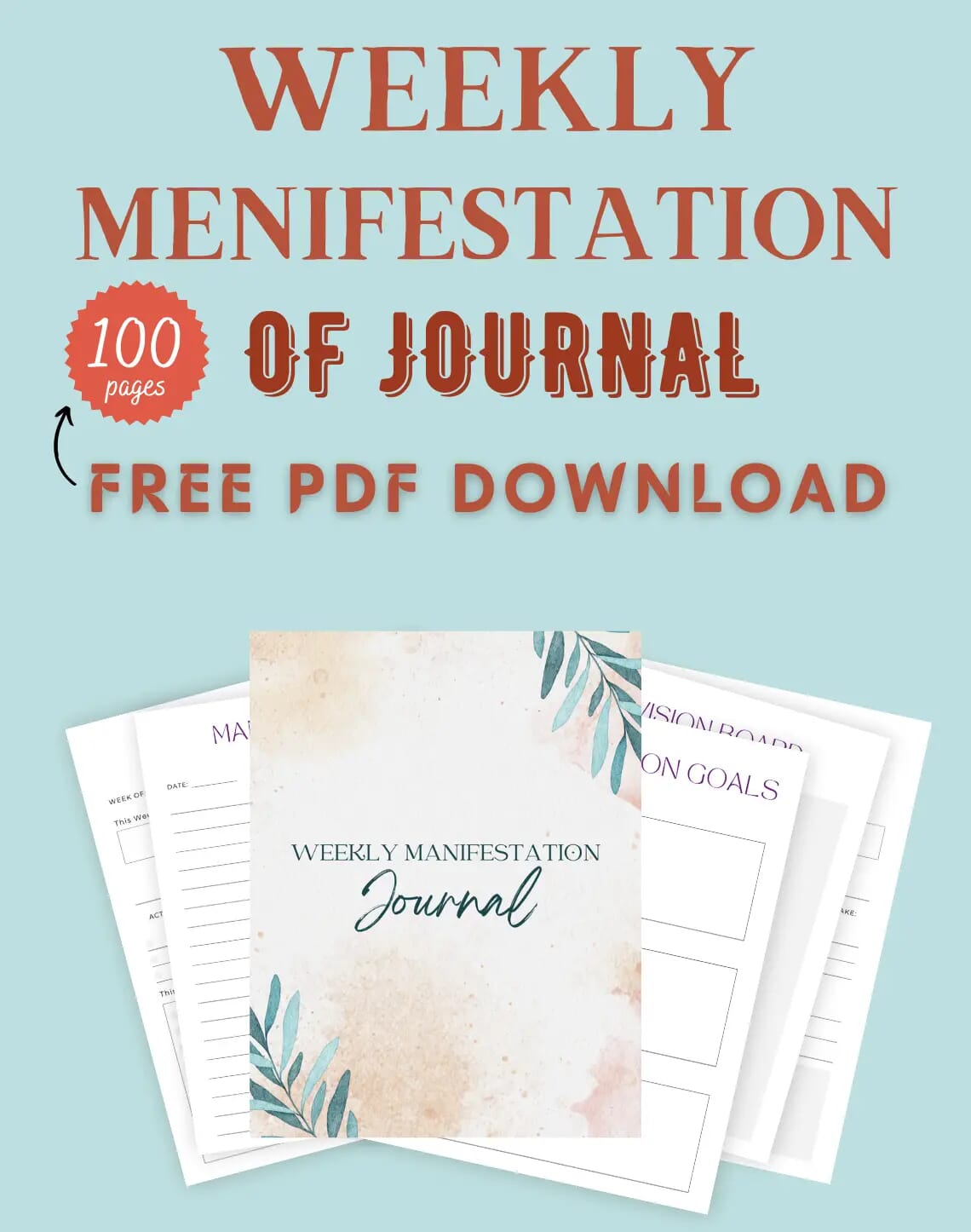Last Updated on May 29, 2023
Are you feeling a bit lost or disconnected from yourself lately? Perhaps you’re struggling to make sense of your thoughts and emotions, or find clarity in your life’s purpose with reflective journal.
If so, then you might want to consider trying out the transformative practice of reflective journaling.
Reflective journaling is a simple yet powerful practice that has been used for centuries to help individuals connect with their innermost selves, and gain valuable insights and perspectives.
By taking the time to write down your thoughts , feelings, and experiences, you create a safe and supportive space for self-reflection and growth.
Through this process, you can begin to untangle the complexities of your mind, and gain a deeper understanding of who you are and what you want out of life.
But reflective journaling isn’t just about gaining insights and self-awareness.
It’s also a tool for healing and transformation. By exploring your thoughts and emotions in a non-judgmental way, you can begin to process and release any negative or painful experiences you may be holding onto.
This can help you move forward in your life with greater clarity, purpose, and peace of mind .
So, whether you’re dealing with past traumas, seeking to connect with your higher self, or simply looking to deepen your understanding of yourself and your place in the world, reflective journaling can be a transformative practice to add to your spiritual toolkit.
In this article, we’ll provide you with a step-by-step guide to getting started with reflective journaling, and explore some creative ways to enhance your experience, such as incorporating crystals, mandala coloring books, and music.
So, let’s dive in and explore the world of reflective journaling together, and discover how it can help you unlock new levels of self-awareness and personal growth!

What Is Reflective Journaling?
A reflective journal is a tool used to reflect upon and document one’s experiences, thoughts, and emotions.
It is a written record of a person’s personal growth and development, which helps them to gain deeper insights into themselves and the world around them.
The purpose of a reflective journal is to encourage self-awareness, promote personal growth, and facilitate learning.
Reflective journaling is a simple yet powerful technique that can be used to enhance spiritual and self-improvement journeys.
It allows individuals to examine their thoughts, emotions, and actions, and to gain a better understanding of themselves and their experiences.
It is a tool that can be used to explore one’s beliefs, values, and attitudes and to develop new insights and perspectives.
To begin a reflective journal, one needs to set aside a regular time to write and reflect.
This could be daily, weekly, or monthly, depending on the individual’s preferences and availability.
The journal can be in any form, whether it is a traditional written journal, a digital journal, or a video journal.
In reflective journaling, one can write about anything that is meaningful to them.
They can write about their experiences, their emotions, their goals, their dreams, their struggles, or their successes.
The key is to be honest and open about one’s thoughts and feelings, and to use the journal as a space for self-exploration and reflection.
Through reflective journaling, individuals can gain new insights into their own experiences and the world around them.
They can identify patterns in their behavior, emotions, and thoughts, and can use this information to make positive changes in their lives.
By documenting their journey, they can also track their progress and celebrate their successes.
Why Write A Reflective Journal?

There are several reasons why one should write a reflective journal, particularly for those on a spiritual and self-improvement journey.
Here are some of the main benefits:
- Self-awareness: Reflective journaling allows individuals to become more self-aware. By writing down their thoughts and feelings, individuals can identify patterns in their behavior, emotions, and thoughts. This self-awareness can lead to a better understanding of one’s strengths, weaknesses, beliefs, values, and attitudes.
- Emotional regulation: Reflective journaling can also help individuals regulate their emotions. By writing down their emotions, individuals can process and release them. This can lead to a greater sense of emotional well-being and resilience.
- Personal growth: Reflective journaling can facilitate personal growth and development. By documenting their experiences and reflecting on them, individuals can gain new insights and perspectives. This can lead to a deeper understanding of oneself and the world around them, and can promote personal growth.
- Goal setting: Reflective journaling can also help individuals set and achieve their goals. By writing down their goals and reflecting on their progress, individuals can stay motivated and focused on their objectives.
- Stress reduction: Reflective journaling can be a great stress-reduction tool. By writing down their thoughts and feelings, individuals can release tension and reduce stress levels.
- Memory preservation: Reflective journaling is also a way to preserve memories. By documenting one’s experiences, individuals can create a record of their journey, which they can look back on in the future.
What’s The Science Behind It?
Reflective journaling is a practice that is based on the principles of cognitive psychology and neurobiology.
Scientific research has shown that reflective journaling has numerous benefits for personal growth, emotional regulation, memory consolidation, and neuroplasticity.
Cognitive processing is a crucial element of reflective journaling, as it encourages individuals to actively think about and process information.
By engaging in this type of cognitive processing, individuals can gain greater self-awareness and develop their personal growth.
Emotional regulation is another benefit of reflective journaling. This practice helps individuals regulate their emotions by engaging the prefrontal cortex, which is responsible for executive function, decision-making, and emotional regulation.
Writing down one’s emotions can activate this part of the brain and reduce stress levels, leading to better emotional well-being.
Reflective journaling can also aid in memory consolidation by allowing individuals to stabilize and integrate new memories into existing knowledge.
By reflecting on their experiences and writing them down, individuals can enhance their memory and gain a deeper understanding of their experiences.
Finally, reflective journaling supports neuroplasticity, which is the brain’s ability to adapt and change in response to new experiences.
RELATED: 135 Positive Affirmations For When You’re Feeling Anxious
By engaging in reflective journaling, individuals can create new neural pathways, which can promote personal growth and transformation.
Preparation

Before starting a reflective journal, it is helpful to prepare yourself in a few ways so you’re feeling as ready as possible:
- Find a quiet and comfortable space: Reflective journaling requires focus and concentration, so it’s important to find a quiet and comfortable space where you can write without distractions.
- Set aside time: Reflective journaling requires a commitment of time, so it’s important to set aside a regular time for writing. This could be once a day, once a week, or whatever frequency works best for you.
- Choose a writing medium: You can choose to write in a physical journal or on a digital platform, depending on your personal preference. If you prefer a physical journal, make sure to choose one that you find aesthetically pleasing and that inspires you to write. If you prefer a digital platform, choose one that is easy to use and that you feel comfortable with.
- Determine your focus: Reflective journaling can cover a wide range of topics, so it’s important to determine what you want to focus on. This could be personal growth, spiritual development, emotional regulation, or any other topic that is important to you.
- Develop a writing prompt: A writing prompt is a question or statement that prompts you to reflect on a specific topic. Developing a writing prompt can help you focus your writing and guide your reflection. You can create your own prompts or find prompts online.
Questions To Ask Yourself
Here are some writing questions to ask yourself before starting a reflective journal:
- What are my goals for writing in a reflective journal?
- What topics do I want to reflect on in my journal?
- What emotions or thoughts do I want to explore through my writing?
- How will I structure my writing, and what writing prompts will I use?
- How frequently do I want to write in my reflective journal?
- How will I hold myself accountable to my writing practice?
- What kind of environment do I need to create to support my writing practice?
- How will I track my progress and measure the effectiveness of my reflective journaling practice?
- What strategies can I use to overcome any obstacles or challenges that may arise during my writing practice?
- How can I ensure that my writing practice is sustainable and enjoyable?
These questions can help you clarify your intentions for your reflective journaling practice and ensure that you create a writing practice that is effective, enjoyable, and sustainable.
By asking yourself these questions before starting your reflective journal, you can set yourself up for success and achieve your personal growth and development goals.
Journal Prompts
Here are some journal prompts as well to inspire both reflection and self-exploration:
- What are three things that I’m grateful for today?
- What is one fear or limiting belief that I can release today?
- What is something that I did today that made me proud of myself?
- What is one lesson that I learned from a difficult situation or challenge?
- What are some goals that I have for myself in the next month, and what steps can I take to achieve them?
- What is one self-care practice that I can prioritize in my daily routine?
- What is something that I want to let go of, and how can I release it?
- What is one way that I can practice self-compassion and kindness towards myself today?
- What is one thing that I can do to improve my mental or emotional well-being?
- What is one new hobby or skill that I want to explore, and why?
These journal prompts can help you tap into your inner wisdom, gain greater self-awareness, and develop your personal growth and self-improvement.
Feel free to modify or create your own prompts based on your personal needs and interests.
The 3 W’s

When it comes to reflective journaling, there are three important “W’s” to keep in mind: What, Why, and What Next.
These three questions can help guide your writing and ensure that you’re getting the most out of your reflective practice.
The first “W” is “What.” This refers to what you’re reflecting on in your journal.
It could be a specific event or experience, a particular emotion or feeling, or even a recurring pattern or behavior that you’ve noticed in yourself.
By being clear about what you’re reflecting on, you can focus your writing and delve deeper into your thoughts and emotions.
The second “W” is “Why.” This refers to why you’re reflecting on this particular topic. What is it about this experience or emotion that is important to you? What do you hope to gain from reflecting on it?
By understanding your motivations for reflecting, you can gain greater clarity and direction in your writing, and ensure that you’re focusing on the most relevant and meaningful aspects of your experience.
The third “W” is “What Next.” This refers to what you plan to do with the insights and perspectives you’ve gained through your reflective writing.
How will you use this new understanding to move forward in your life? What changes or actions will you take based on what you’ve learned?
By considering what comes next, you can ensure that your reflective practice is not just an intellectual exercise, but a catalyst for personal growth and transformation.
By keeping these three “W’s” in mind when engaging in reflective writing, you can ensure that you’re getting the most out of your practice, and using it as a powerful tool for self-awareness, healing, and growth.
How To Write A Reflective Journal
Step 1: Choose a Time and Place
The first step in starting a reflective journaling practice is to choose a time and place to write. It’s important to find a quiet and comfortable space where you can focus on your writing without distractions.
This could be a private room in your home, a peaceful spot in nature, or a cozy coffee shop. Whatever space you choose, make sure that it’s conducive to your writing practice and inspires you to reflect .
In addition to finding a suitable space, it’s important to choose a time of day that works best for you.
Some people prefer to write first thing in the morning, while others prefer to write in the evening before bed. The key is to choose a time when you can commit to your writing practice consistently.
When choosing a time and place for your reflective journaling practice, consider the following factors:
- Distractions: Choose a space where you can minimize distractions and interruptions, such as loud noises or people walking by.
- Comfort: Choose a comfortable space where you can sit or lie down without feeling strained or uncomfortable.
- Inspiration: Choose a space that inspires you, whether it’s a serene nature setting, a cozy reading nook, or a place that reminds you of positive memories or experiences.
- Accessibility: Choose a space that is easily accessible and convenient for you to visit regularly.
By choosing a time and place that works best for you, you can create a supportive and productive environment for your reflective journaling practice.
This can help you stay motivated, focused, and consistent in your writing practice, leading to greater personal growth and self-awareness.
Step 2: Set Your Intention
Before you begin writing in your reflective journal, it’s important to set your intention.
This means clarifying why you are starting a reflective journaling practice and what you hope to gain from it.
Setting an intention can help you focus your writing practice and ensure that you are working towards your personal growth and development goals.
To set your intention, take a few moments to reflect on the following questions:
- What motivated me to start a reflective journaling practice?
- What specific areas of my life do I want to explore and reflect on in my writing?
- What personal growth or self-improvement goals do I hope to achieve through my writing practice?
- How can I hold myself accountable to my writing practice and track my progress towards my goals?
By setting a clear intention for your reflective journaling practice, you can stay motivated and focused on your personal growth and development goals.
Your intention can guide your writing practice, helping you to explore your inner world, gain greater self-awareness, and develop new insights and perspectives.
Step 3: Choose Your Writing Prompts
Once you have chosen your time and place and set your intention, it’s time to choose your writing prompts. Writing prompts are questions or statements that inspire you to reflect on specific aspects of your life, thoughts, emotions, and experiences.
They can help you dive deeper into your inner world, gain new insights, and connect with your inner wisdom.
RELATED: 95 Of Don Miguel Ruiz’s Best Quotes
There are many different types of writing prompts to choose from, including gratitude prompts, goal-setting prompts , self-reflection prompts, and mindfulness prompts.
You can also create your own prompts based on your personal interests and goals.
Here are some examples of writing prompts to help you get started:
- Gratitude prompts: What are three things that you are grateful for today? What positive experiences or interactions did you have today?
- Self-reflection prompts: What are some of your core values and beliefs? What motivates you to pursue your goals? What fears or limiting beliefs are holding you back?
- Mindfulness prompts: What is one thing that you can do to practice mindfulness today? How can you bring more presence and awareness into your daily life?
- Goal-setting prompts: What are some short-term and long-term goals that you have for yourself? What steps can you take to achieve these goals?
- Creativity prompts: What is one creative activity or project that you want to explore? How can you incorporate more creativity into your daily life?
By choosing writing prompts that resonate with you, you can create a reflective journaling practice that is engaging, inspiring, and personally meaningful.
Don’t be afraid to experiment with different prompts and see what works best for you.
Step 4: Start Writing
Now that you have your time and place, intention, and writing prompts, it’s time to start writing in your reflective journal.
Begin by taking a few deep breaths and centering yourself in the present moment.
Set an intention for your writing session and allow yourself to be fully present with your thoughts and emotions.
As you begin to write, remember that there is no right or wrong way to approach reflective journaling.
Your writing practice is unique to you, and you should feel free to write in a way that feels authentic and comfortable to you.
Here are some tips to help you get started:
- Write freely: Allow your thoughts and emotions to flow freely onto the page without judgment or self-censorship. Don’t worry about grammar, spelling, or punctuation; focus on expressing yourself in a way that feels true to you.
- Be honest: Be honest with yourself about your thoughts, emotions, and experiences. Reflect on your successes and challenges, your fears and hopes, and your personal growth and development goals.
- Stay focused: Stay focused on your writing prompts and your intention for your writing session. If your mind starts to wander, gently bring your attention back to your writing and your breath.
- Stay consistent: Commit to a consistent writing practice, whether it’s daily, weekly, or bi-weekly. The more you write, the more you will develop your reflective journaling skills and gain greater insights and self-awareness.
By starting your reflective journaling practice and committing to regular writing sessions, you can deepen your self-awareness, gain new insights, and develop greater clarity and focus in your life.
Remember that your reflective journal is a personal and private space where you can explore your inner world without judgment or criticism. So go ahead and start writing!
Step 5: Reflect on Your Writing
After you have completed your writing session, take some time to reflect on what you have written.
This is an important step in the reflective journaling process, as it allows you to gain greater insights and understanding of yourself, your experiences, and your emotions.
As you reflect on your writing, consider the following questions:
- What did I learn from my writing today?
- Did any new insights or realizations emerge?
- How do my thoughts and emotions relate to my intention for this writing session?
- What patterns or themes do I notice in my writing over time?
- How can I apply what I learned from my writing to my daily life?
Reflecting on your writing can help you connect the dots between your thoughts, emotions, and experiences, and gain greater clarity and understanding of your inner world.
It can also help you identify areas for personal growth and development, and inspire you to take action towards your goals and dreams.
Remember that reflective journaling is a practice, and like any practice, it takes time and commitment to develop.
Be patient with yourself and allow yourself to be vulnerable and authentic in your writing.
RELATED: 113 Powerful Appreciation Quotes To Express Gratitude
With consistent practice, you can cultivate greater self-awareness, deepen your personal growth and development, and live a more fulfilling and meaningful life.
Use Crystals
Crystals and crystal jewelry can be used to enhance the reflective journaling experience in a number of ways.
Here are a few ideas:
- Choose a crystal to hold or wear during your writing session: Many people believe that crystals have unique energies that can support different intentions and emotions. For example, amethyst is believed to enhance spiritual awareness and intuition, while rose quartz is thought to promote self-love and emotional healing. Choose a crystal that resonates with your intention for your writing session and hold it in your hand or wear it as jewelry while you write.
- Create a crystal grid or arrangement: Another way to use crystals during your reflective journaling practice is to create a crystal grid or arrangement in your writing space. Arrange your crystals in a way that feels aesthetically pleasing and supportive to your intention. For example, you might create a circle of crystals around your journal to promote grounding and focus.
- Use crystals to set the mood: You can also use crystals to create a specific mood or ambiance in your writing space. For example, you might light a candle and place it next to a cluster of clear quartz crystals to promote clarity and focus. Or you might place a piece of selenite next to your journal to promote calmness and mental clarity.
- Meditate with a crystal before or after writing: Finally, you might consider meditating with a crystal before or after your reflective journaling session. Hold the crystal in your hand or place it on your forehead as you meditate, and visualize its energy supporting your intention for your writing session. This can help you enter a more focused and centered state of mind, and allow you to integrate the insights and realizations you gained from your writing.
Use Mandala Coloring Books
Coloring mandalas can be a meditative and calming practice that helps to focus the mind and reduce stress.
Before or after your writing session, you might consider spending a few minutes coloring a mandala as a way to relax and ground yourself.
Alternatively, you could use a mandala coloring book as a way to visually express your thoughts and emotions.
Choose a mandala that resonates with your intention or emotional state, and color it in a way that reflects your inner world.
Listen To Music
Music can also be a powerful tool for enhancing the reflective journaling experience. Before you start writing, consider playing some music that aligns with your intention or emotional state.
For example, if you’re feeling anxious , you might play some calming instrumental music. Alternatively, if you’re feeling inspired or energized, you might play some upbeat music to get you in the flow.
You can also use music as a way to transition out of your writing session and into the rest of your day.
Choose a song that reflects the mood or insights gained from your writing, and let it guide your transition.
Next Steps
After completing your reflective journaling session, there are several next steps that you can take to deepen your experience and integrate what you’ve learned.
Here are some ideas:
- Re-read your journal entry: Take a few minutes to re-read your journal entry once you’ve finished writing. Reflect on any insights or realizations that stand out to you. Consider underlining or highlighting any particularly important passages.
- Summarize your insights: Write a short summary of the insights or realizations that you gained from your journaling session. This can help you distill the key takeaways and reflect on how you might apply them to your life.
- Take action: Think about any actions or changes that you might want to make based on your journaling session. Consider setting some specific goals or intentions for how you will integrate your insights into your daily life.
- Practice gratitude: Take a moment to express gratitude for the insights or realizations that you gained from your journaling session. This can help you cultivate a positive and appreciative mindset, and reinforce the benefits of your practice.
- Reflect on your process: Finally, take some time to reflect on your journaling process itself. Consider what worked well for you and what you might want to adjust or experiment with next time. This can help you refine your practice and make it even more effective in the future.
By taking these next steps after your reflective journaling session, you can deepen your experience, integrate your insights, and continue to grow on your spiritual and self-improvement journey.
Remember, reflective journaling is a powerful tool for those on a spiritual and self-improvement journey.
It provides an opportunity to reflect on your thoughts, emotions, and experiences in a safe and supportive environment, allowing you to gain valuable insights and perspectives.
By following the step-by-step guide we’ve provided, you can create a reflective journaling practice that works for you, incorporating crystals, mandala coloring books, and music as desired.
And by taking the next steps post-journaling, you can deepen your experience and integrate your insights into your daily life.
So whether you’re looking to gain clarity, heal from past traumas, or simply connect with your inner self, reflective journaling can be a powerful and transformative practice to add to your toolkit.
Frequently Asked Questions
How do I write my reflective journal?
To write your reflective journal, follow these steps:
Find a Quiet Space: Choose a quiet and comfortable space where you can focus and reflect without distractions. Create an environment that promotes relaxation and introspection.
Set a Time: Decide on a regular time for your reflective journaling practice. It can be in the morning to set intentions for the day or in the evening to reflect on the day’s events. Consistency is key.
Start with Prompts: Begin by using prompts or guiding questions to stimulate your reflections. These prompts can be general (e.g., “How am I feeling today?”) or specific to certain experiences or themes you want to explore.
What is the purpose of a reflective journal record?
The purpose of a reflective journal record is to facilitate self-reflection, self-awareness, and personal growth. It serves as a written account of your thoughts, emotions, and experiences, allowing you to explore and make sense of them on a deeper level.
By recording your reflections in a journal, you create a tangible and private space to document your inner world. It helps you process your thoughts and emotions, gain insights into patterns or recurring themes, and identify areas for personal development.
What are the features of reflective journal?
The features of a reflective journal include:
Self-Reflection: A reflective journal encourages introspection and self-exploration. It prompts you to reflect on your thoughts, emotions, and experiences, allowing you to gain deeper insights into yourself.
Personal Expression: Reflective journals provide a platform for self-expression. You have the freedom to express your thoughts, feelings, and ideas without judgment or external expectations.
Emotional Awareness: Reflective journals help you develop emotional awareness. They allow you to explore and articulate your emotions, enabling you to better understand and manage them.
Continue Reading 👉🏽: 320 Monday Blessings To Start Your Week Off Right
- 49 Unique Self-Care Kit Ideas For Your Well-Being - February 14, 2024
- 85 Exciting And Encouraging Quotes About Trying New Things In Life To Inspire That First Step - February 14, 2024
- 125 Inspiring You Are Amazing Quotes For Yourself And The Special People In Your Life - February 14, 2024










